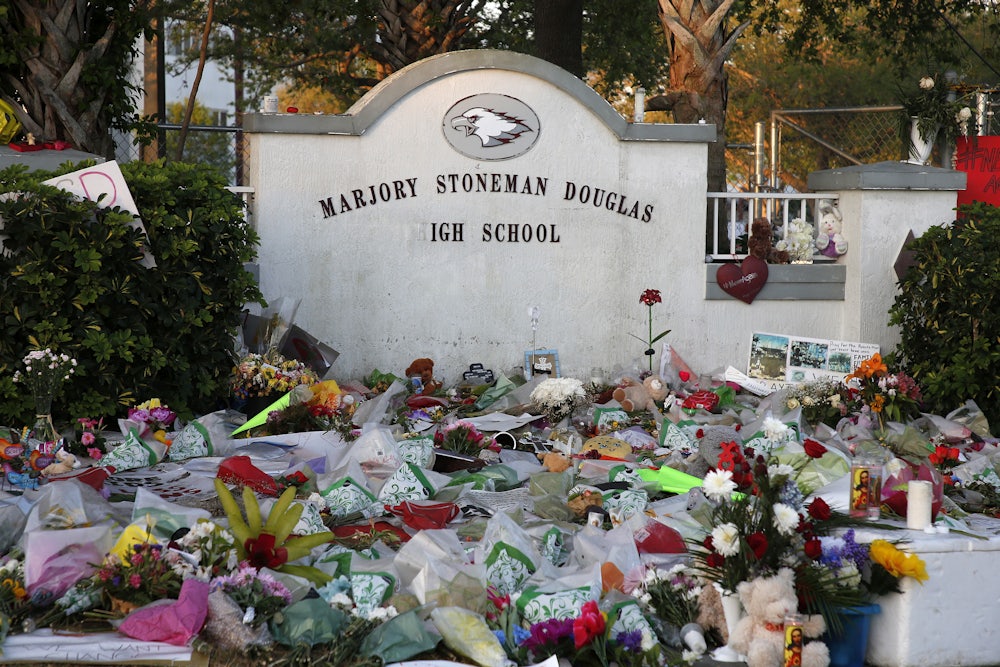On Tuesday, the Associated Press posted an in-depth examination of the inroads security companies have made in selling expensive equipment to local education boards in the wake of rising anxiety about school shootings. The February 14 massacre at Marjory Stoneman Douglas High School in Parkland, Florida, which left 17 dead, has made the cause of school safety more urgent.
The pitch security companies are making is that schools are soft targets, which need to be hardened in the way airports have been during the war on terrorism. Among the high-end products being hawked are bullet-resistant doors and “smoke cannons that spew haze from ceilings to confuse a shoot.”
Because only one state has set guidelines about minimum school security, the industry is taking the lead in defining norms, with a tendency to favor high-end products. As AP reports, “According to a nonprofit group formed by a major lock manufacturer, for example, upgrading an elementary school with basic security equipment costs at least $94,000 and a high school at least $170,000. If all the nation’s public schools were to follow those guidelines, the cost would total at least $11 billion, according to industry calculations.”
Samuel Joseph Wurzelbacher, a former presidential candidate better known as Joe the Plumber, is selling a line of cheaper secure doors and is critical of the tendency of the industry to inflate costs. “There’s going to be a lot of money to be made here,” Wurzelbacher said. “I think there’s a lot of people who are offering school systems an illusion of security, as opposed to real security.”
There is scant evidence that school shootings are on the rise in the United States (although they are more common there than elsewhere in the world). Nor is it the case that turning schools into fortresses would necessarily make such shootings significantly less common or deadly. “Hardening advocates acknowledge that mass upgrades would not eliminate shootings,” AP notes. “Many shooters are students whose familiarity with a school’s layout and security could help them outsmart even elaborate safeguards.”
